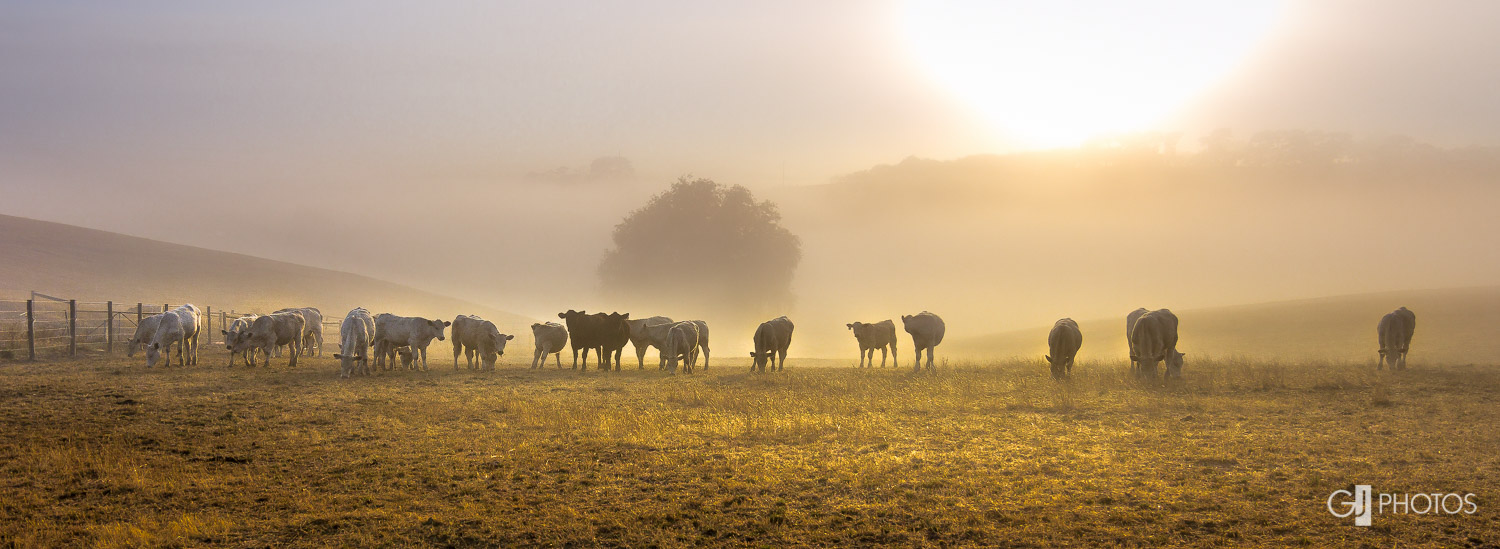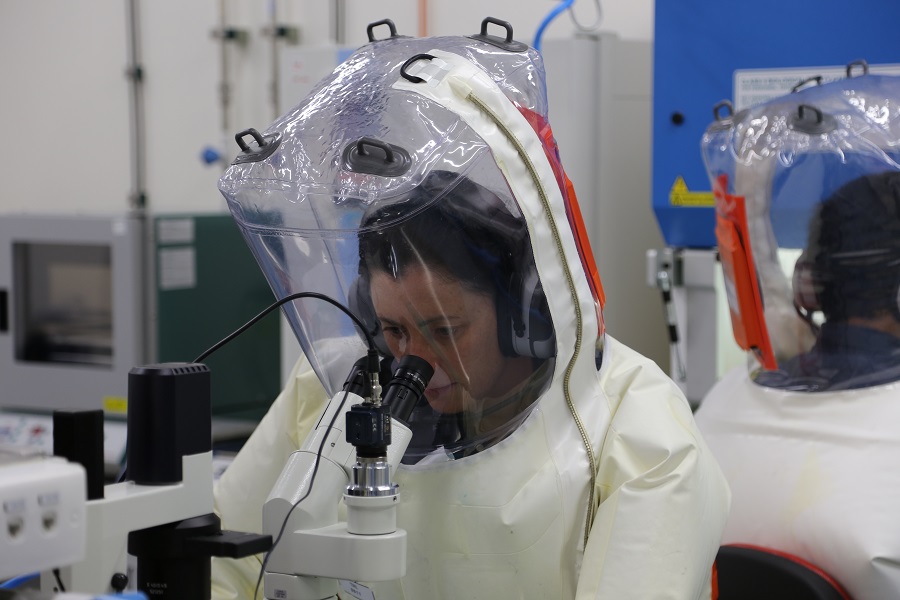Our researchers at the Australian Animal Health Laboratory (AAHL) have worked together with Nuffield Australia Farming Scholars to share research insights that will help protect Australia's livestock

Cows grazing outside in field with sun rising behind them in the horizon.
Our strong biosecurity system helps to protect our livestock.
Many of us are aware of Australia’s strict biosecurity regulations and the reasons for why they are important – even if it escapes the attention of certain celebrities.
A positive consequence of this particular incident was that Australia’s commitment to biosecurity was broadcast to the world on the back of celebrity fame.
The truth is, Australia is fortunate to be free of many of the world’s worst livestock and agricultural diseases and it’s our strong biosecurity system helping to keep it that way.
An important part of Australia’s biosecurity defence is our world-class high containment facility, Australian Animal Health Laboratory (AAHL), designed to allow scientific research into the most dangerous infectious agents in the world and which contains a specialised diagnostic emergency response laboratory.
Equally important is the role of Australian farmers, who work every day on the front line of disease prevention and can raise the alarm should they observe something different in their daily farm care.
Traditionally, staff from AAHL’s Surveillance and Diagnostics team work closely with the vet community but recently, they became aware of a group of primary producers linked together through the Nuffield Australia Farming Scholars program.

Our researchers who undertake research with zoonotic viruses, such as Hendra virus and SARS, must work at Biosafety Level 4 (BSL4) – the highest biosecurity level.
Nuffield is the leading program for primary producers in Australia, identifying new leaders in industry and the community, and continuing to drive excellence in our agricultural industry.
Given the Scholars’ interest in the uptake of new technology and commitment to maintain best practice management on their farms, our staff were keen to provide the opportunity for them to visit AAHL and learn first-hand about the research and services provided by our scientists.
The visiting scholars represented a large number of rural industries including dairy, cropping, livestock, horticulture, viticulture, chicken meat and eggs.
Nuffield Victoria Chairman David Drage attended the event and was impressed by the facility.
“We did a ‘virtual tour’ of the secure sections of the building, which is Australia’s only high containment facility” he said.
“This was followed by presentations from scientists about biosafety and biosecurity, the threat of foot and mouth disease and capripox, and a talk on embryo sexing for the egg industry which was all very insightful”.
“We got a renewed understanding of animal diseases, the need for biosecurity practices on-farm, and insights into research being conducted to protect the health of Australia’s livestock and prepare Australia for an emergency animal disease outbreak,” said David.

